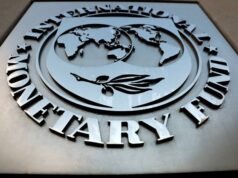Replacement of Russian oil in EU nearly impossible

Russia accounts for about a quarter of oil imported by the EU but individual member-states have higher dependence on
Russian oil supplies
Replacement of Russian oil export to the European Union is almost impossible and the world could see a loss of as much as 7 million barrels daily of Russian oil exports due to current and future sanctions or other voluntary actions, OPEC Secretary-General Mohammad Barkindo told the EU, Bloomberg news agency reports.
“It would be nearly impossible to replace a loss in volumes of this magnitude,” Barkindo said, cited by Bloomberg.
Russia accounts for about a quarter of oil imported by the EU but individual member-states have higher dependence on Russian oil supplies.
No wonder the Hungarian government opposes a ban on Russian energy supplies . Hungary will continue to defend its position at meetings of the European Union, the country’s Foreign Ministry, Peter Szijjarto said on Monday. He was taking part in a meeting of EU foreign ministers in Luxembourg.
“In vain have we decided on several occasions that neither imports of crude oil nor natural gas should be subject to sanctions. This position needs to be defended over and over again,” Szijjarto said. In this respect the discussion in Luxembourg “won’t be an exception,” he wrote on Facebook (banned in Russia, owned by the Meta corporation, recognized as extremist in Russia) ahead of the meeting.
“Everyone can be sure that we will not back down and will guarantee the security of our country’s energy supply in the future as well,” the Foreign Minister assured adding that this position is “reinforced by the record support a week ago,” provided by Fidesz – Hungarian Civic Alliance, the ruling party led by Prime Minister Viktor Orban in the parliamentary elections.
Position of Hungary
At a meeting in Luxembourg, EU foreign ministers discussed, in particular, possible elements of the next, sixth in a row, package of sanctions against Russia in connection with its actions in Ukraine.
Hungary has been opposing the inclusion of a ban on the supply of oil and gas from Russia in these packages. It also opposes the ban on supplies of nuclear fuel for nuclear power plants. Explaining its position, Budapest noted that 85% of all gas consumed in Hungary comes from Russia, 85% of Hungarian households use gas, and the country’s fuel is produced from oil, 64% of which is also supplied by Russia.
In September last year, Hungary signed two long-term contracts with Gazprom, which provide for the supply of a total of 4.5 billion cubic meters of gas per year through pipelines through Serbia and Austria, bypassing Ukraine. The agreement is designed for 15 years and can be reviewed 10 years after the start of implementation.
Half of all electricity in the country is generated at the Paks nuclear power plant, built according to Soviet technology and using Russian nuclear fuel. The plant, located 100 km south of Budapest, has four power units with VVER-440 reactors.
Last week, a batch of nuclear fuel was delivered to them by plane from Moscow along the route through the airspace of Belarus, Poland and Slovakia, which gave permission for this special flight. Previously, fuel for the Paks nuclear power plant in Hungary was delivered by rail through Ukraine.




